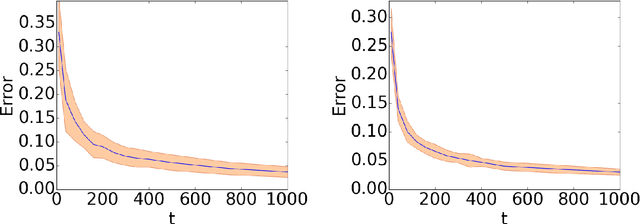Learning to Partition using Score Based Compatibilities
Paper and Code
Mar 22, 2017


We study the problem of learning to partition users into groups, where one must learn the compatibilities between the users to achieve optimal groupings. We define four natural objectives that optimize for average and worst case compatibilities and propose new algorithms for adaptively learning optimal groupings. When we do not impose any structure on the compatibilities, we show that the group formation objectives considered are $NP$ hard to solve and we either give approximation guarantees or prove inapproximability results. We then introduce an elegant structure, namely that of \textit{intrinsic scores}, that makes many of these problems polynomial time solvable. We explicitly characterize the optimal groupings under this structure and show that the optimal solutions are related to \emph{homophilous} and \emph{heterophilous} partitions, well-studied in the psychology literature. For one of the four objectives, we show $NP$ hardness under the score structure and give a $\frac{1}{2}$ approximation algorithm for which no constant approximation was known thus far. Finally, under the score structure, we propose an online low sample complexity PAC algorithm for learning the optimal partition. We demonstrate the efficacy of the proposed algorithm on synthetic and real world datasets.
 Add to Chrome
Add to Chrome Add to Firefox
Add to Firefox Add to Edge
Add to Edge